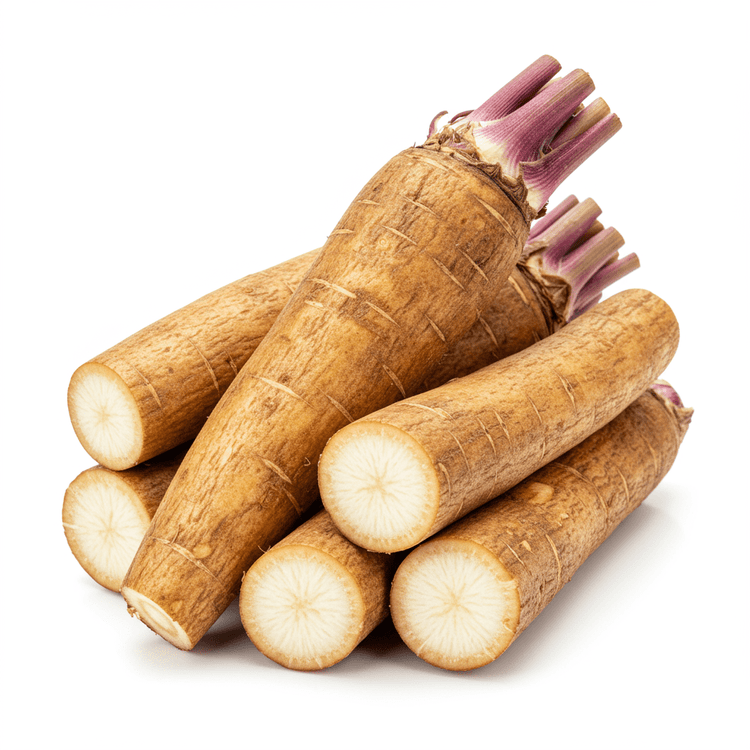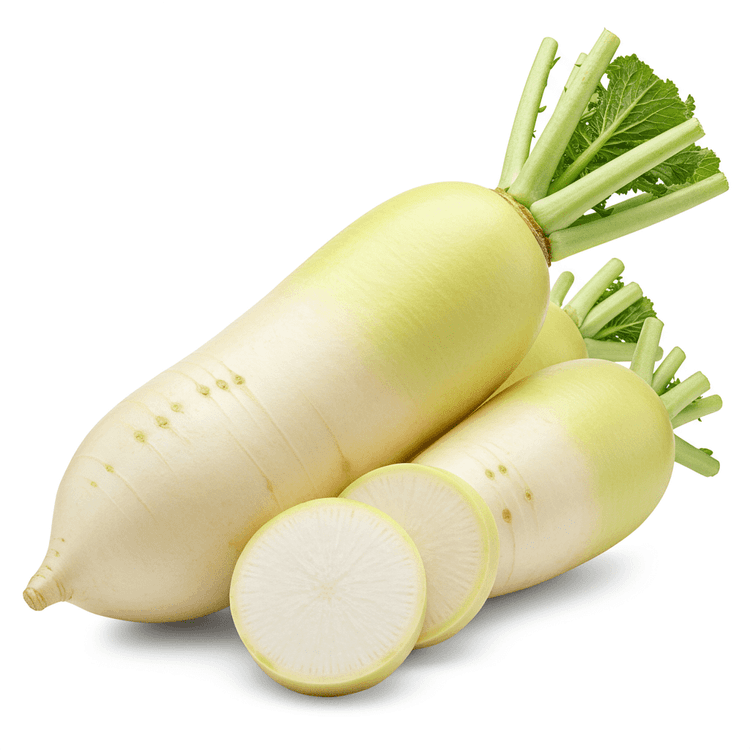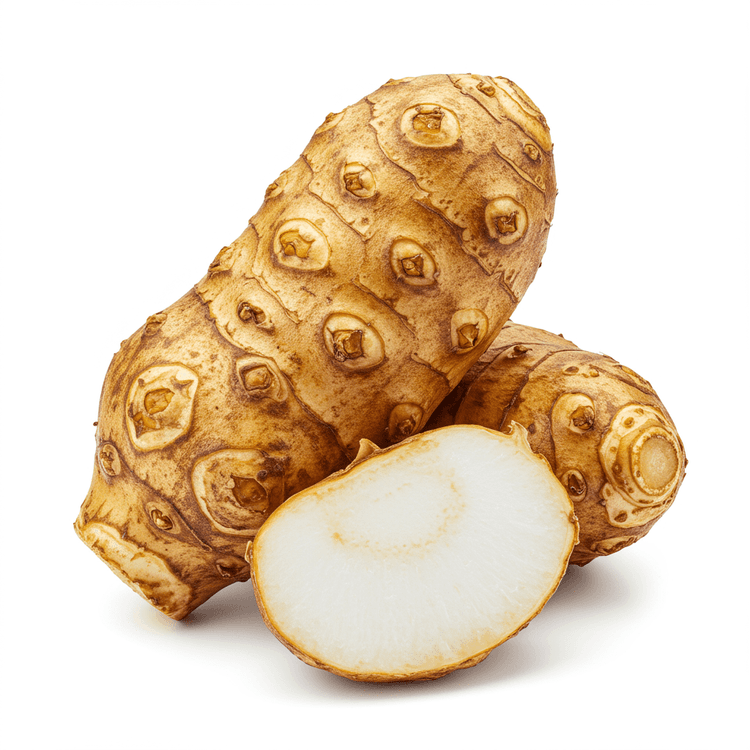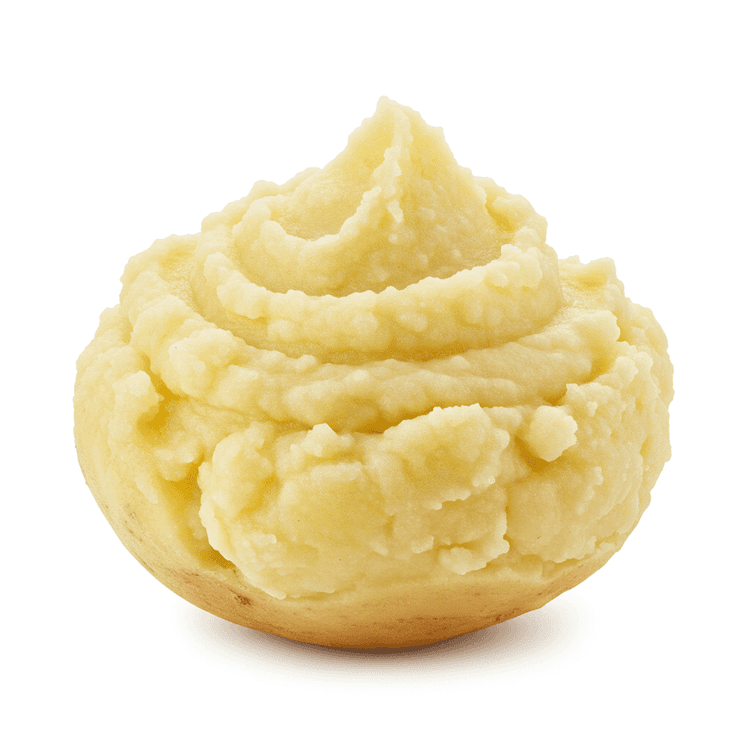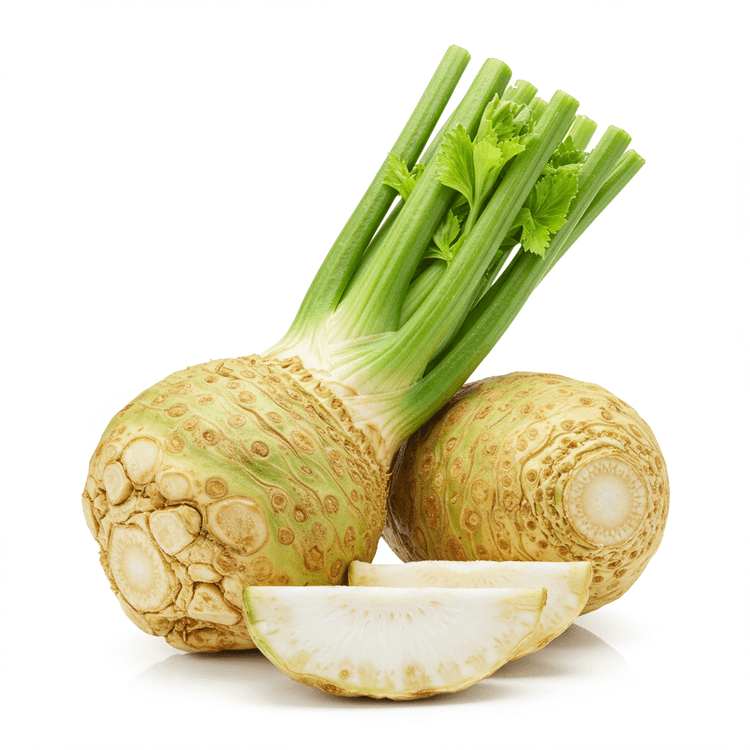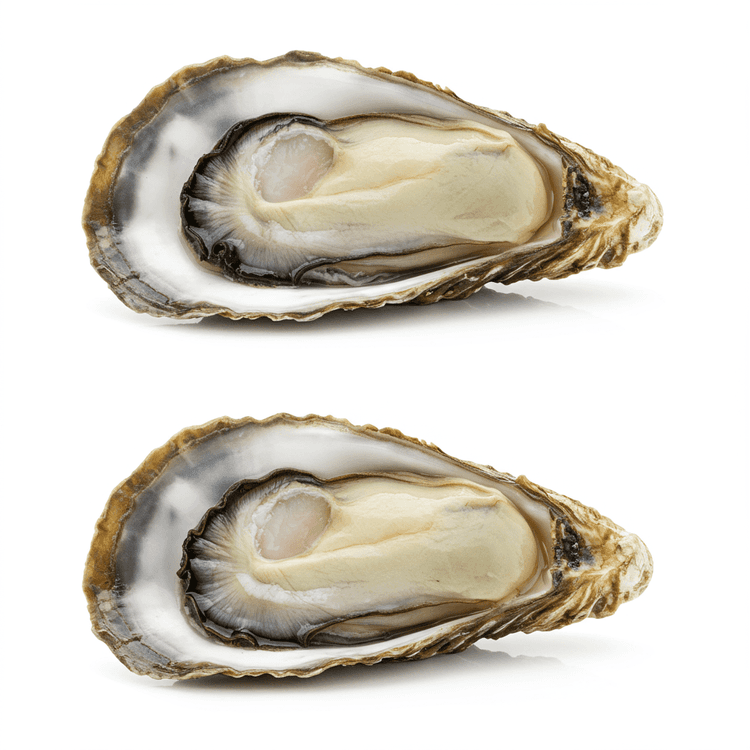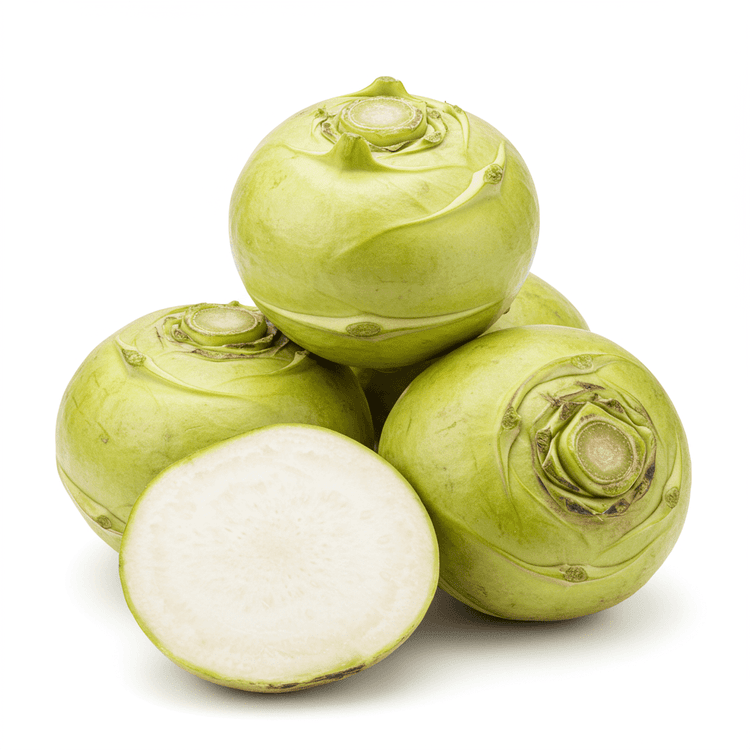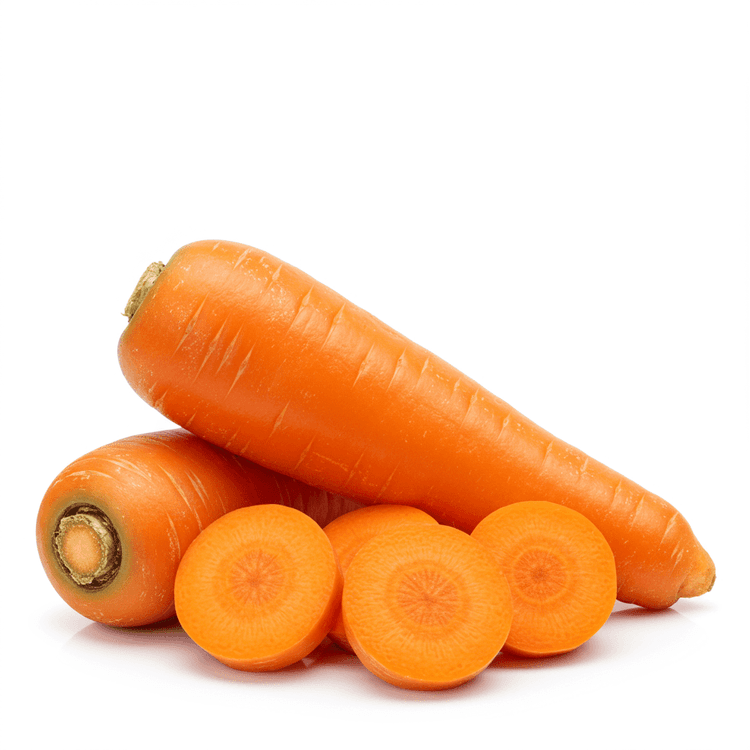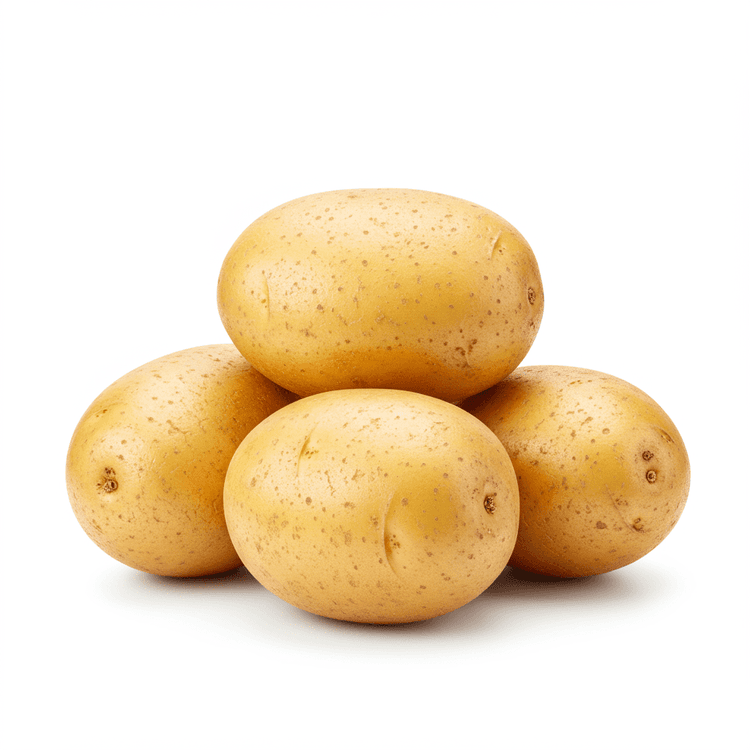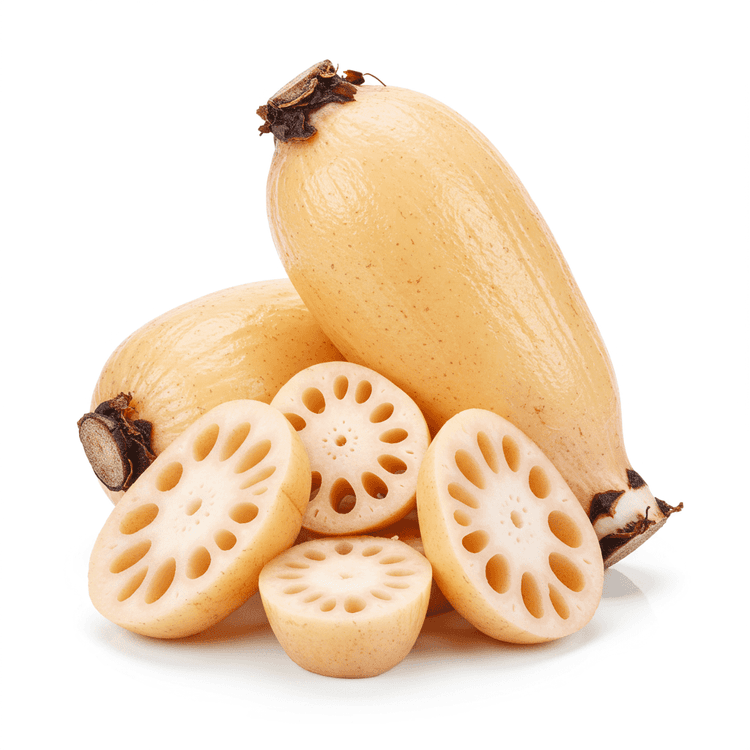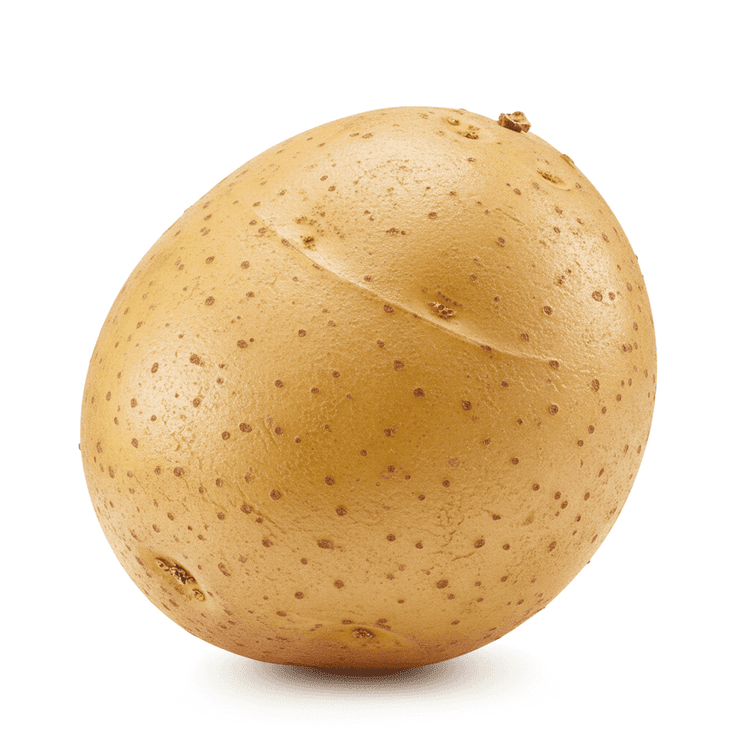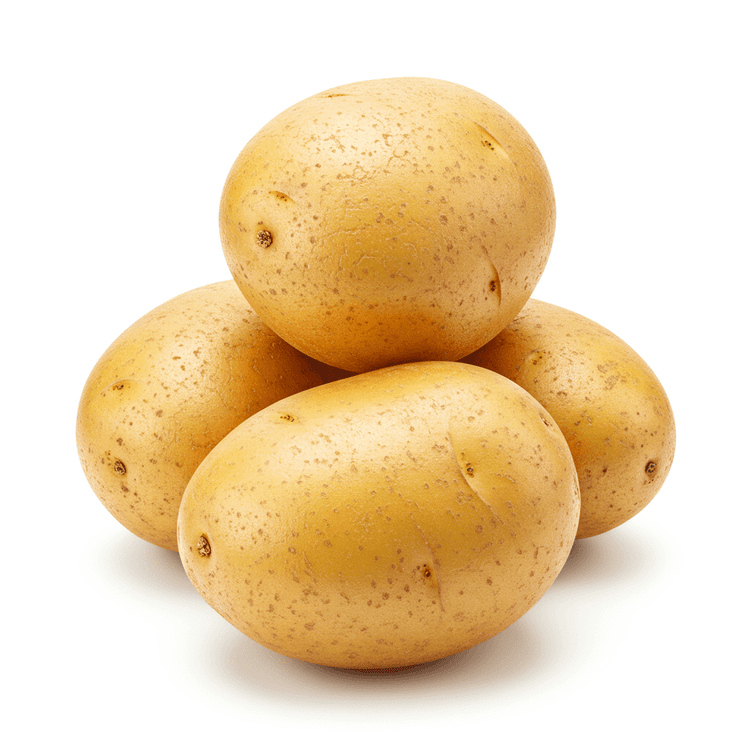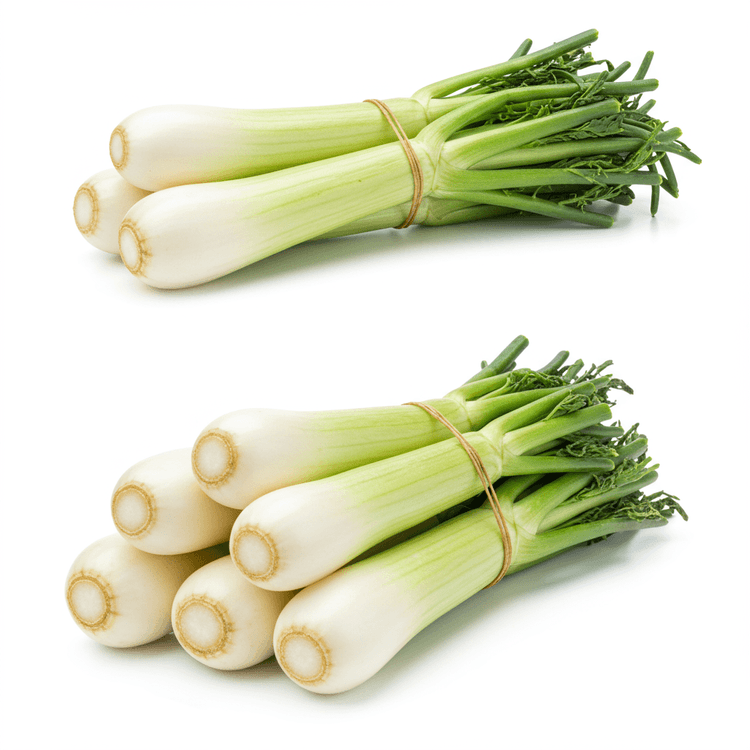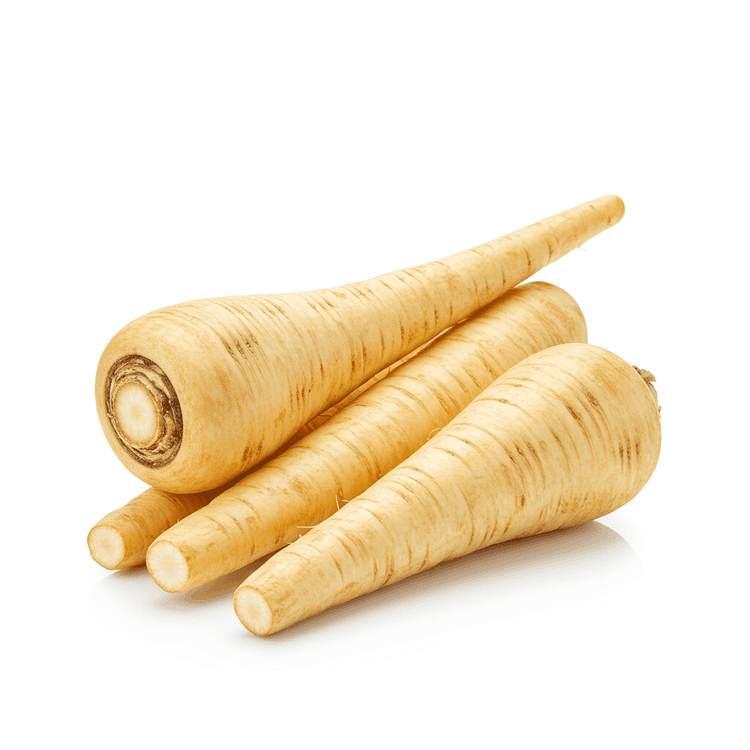
Parsnip
The parsnip, a root vegetable closely related to carrots and parsley, offers a sweet and slightly earthy flavor. Its creamy white flesh has a firm texture when raw, becoming tender and almost buttery when cooked. Look for firm, unblemished parsnips that are light tan to ivory in color. This versatile vegetable is perfect roasted, mashed, or added to soups and stews, offering a unique depth of flavor to any dish. The parsnip's natural sweetness intensifies during the colder months making it a wonderful addition to your fall and winter meals. When shopping, smaller parsnips tend to be sweeter and have a more delicate flavor compared to larger, more fibrous ones.
Common Uses
- Parsnips can be roasted with other root vegetables like carrots, potatoes, and sweet potatoes for a sweet and savory side dish. Roasting brings out their natural sweetness, creating caramelized edges and a tender interior.
- Parsnip puree is a delicious and healthy alternative to mashed potatoes. Simmer parsnips until tender, then blend with butter or cream and seasonings for a smooth and flavorful side.
- Parsnips add a subtle sweetness and depth of flavor to soups and stews. Dice them and add them early in the cooking process to allow their flavors to meld with the other ingredients.
- Use parsnips in gratins with cheese and cream for a rich and comforting dish. Thinly slice the parsnips and layer them with your favorite cheese and a creamy sauce, then bake until golden brown.
- Parsnips can be transformed into crispy and flavorful fries. Cut parsnips into fry shapes, toss with oil and seasonings, and bake or air fry until golden and crispy.
- Grated parsnips can be incorporated into cakes, muffins, and breads, adding moisture and a subtle sweetness. Similar to carrots, they create a moist and flavorful baked good.
Nutrition (per serving)
Nutrition (per serving)
Calories
75.0kcal (3.75%)
Protein
1.2g (2.4%)
Carbs
17.4g (6.33%)
Sugars
4.8g (9.6%)
Healthy Fat
0.2g
Unhealthy Fat
0.0g
% Daily Value based on a 2000 calorie diet
Nutrition (per serving)
Calories
75.0kcal (3.75%)
Protein
1.2g (2.4%)
Carbs
17.4g (6.33%)
Sugars
4.8g (9.6%)
Healthy Fat
0.2g
Unhealthy Fat
0.0g
% Daily Value based on a 2000 calorie diet
Health Benefits
- Rich in vitamins and minerals like vitamin C, vitamin K, and folate, contributing to overall health.
- High in dietary fiber, promoting healthy digestion and preventing constipation.
- Contains antioxidants that help protect the body against free radical damage and reduce the risk of chronic diseases.
- May support weight management due to its high fiber content, promoting feelings of fullness.
- Good source of potassium, which is important for maintaining healthy blood pressure.
- Naturally sweet and can be used as a healthy alternative to refined sugars in some recipes.
Substitutes
Chefadora AI is here.
Experience smarter, stress-free cooking.
Storage Tips
Parsnips are best stored in the refrigerator. Remove any greens, as they draw moisture from the root. Place the parsnips in a plastic bag or wrap them in a damp paper towel inside a plastic bag to maintain humidity. Properly stored parsnips can last for several weeks in the refrigerator. For longer storage, parsnips can be blanched and frozen for up to 8-12 months.
Marnirni-apinthi Building, Lot Fourteen,
North Terrace, Adelaide, South Australia, 5000
Australia
